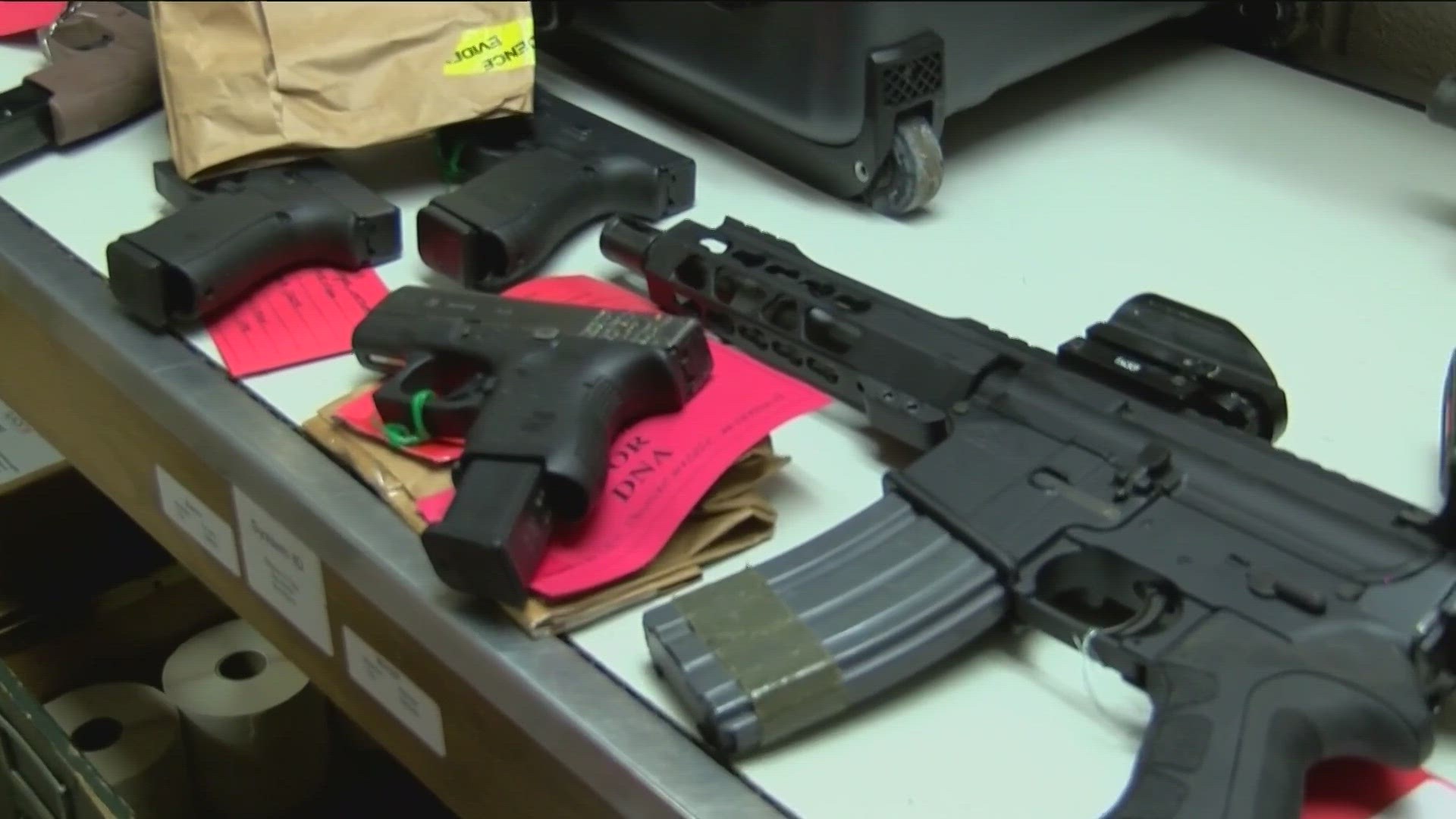TOLEDO, Ohio — Michigan lawmakers just passed a "red flag law" in both the state Senate and House. The legislation is currently awaiting Gov. Gretchen Whitmer's signature.
The Extreme Risk Protection Order Act would allow the courts to take guns from people deemed an "imminent threat" to themselves or others. Similar laws are being implemented in 19 states.
The process relies on people reporting warning signs - or red flags - they might see from friends or family, threats of violence and dangerous behavior and reporting it to the police.
It doesn't immediately result in guns being taken away from people but rather opens a lengthy inquiry into their background. The court system would then look into a person's criminal history, looking for signs like a previous history of gun violence or mental health problems. If a serious case can be argued, only then will they consider taking away someone's weapons.
The removal is often temporary, with guns returned to the owner after a period of time has passed.
But is it effective?
Kelly Drane, research director for Giffords Law Center to Prevent Violence, said early research shows the states using the laws are seeing positive results.
"These orders have been used to intervene in cases of threatened mass shootings more than 662 times across just six states in the last couple of years," Drane said. "So I think those are some data points that show these policies have real promise."
Drane said that studies in Connecticut and Indiana found that after applying the policy, the number of deaths by suicide by gun in those states dropped by 14% and 7.5%, respectively.
While it's not a catch-all policy to stop all gun violence, Drane said it gives a voice to people seeing potential warning signs. Then, the courts will take a closer look at that person's record before making any kind of decision.
"Things like whether this person has threatened violence before against themselves or others," Drane said. "Whether they have access to a firearm, potentially whether they have abused a firearm in the past, or other indicators."
But Jody Madeira, a law professor at the University of Indiana, said she's found in her research not everyone feels comfortable making that call.
"They might fear that doing so will incur criminal liability or even civil liability for the person they're trying to protect or that they themselves will be harassed by the person whom they're trying to bring to police attention," Madeira said.
Maderia said another hurdle for the policy's effectiveness actually comes from law enforcement officers, who often have complex feelings about taking away people's weapons and simply don't implement the law, even if it's legal in their state.
Additionally, two firearms rights groups have attempted to stop the policy's passage in court, but that was shot down by a Michigan judge Friday morning.
Madeira said if Michigan is going to implement these laws, its residents will need to remember they aren't trampling on personal freedoms by making a report; they're taking the first step to keep people safe.
"Just because someone calls with red flag concern doesn't mean police are going to come in and seize firearms. There's going to be a very careful inquiry that's going to take place," Madeira said."No one wants to trample on second amendment rights and often this is the first domino that falls in a chain that could save lives."

